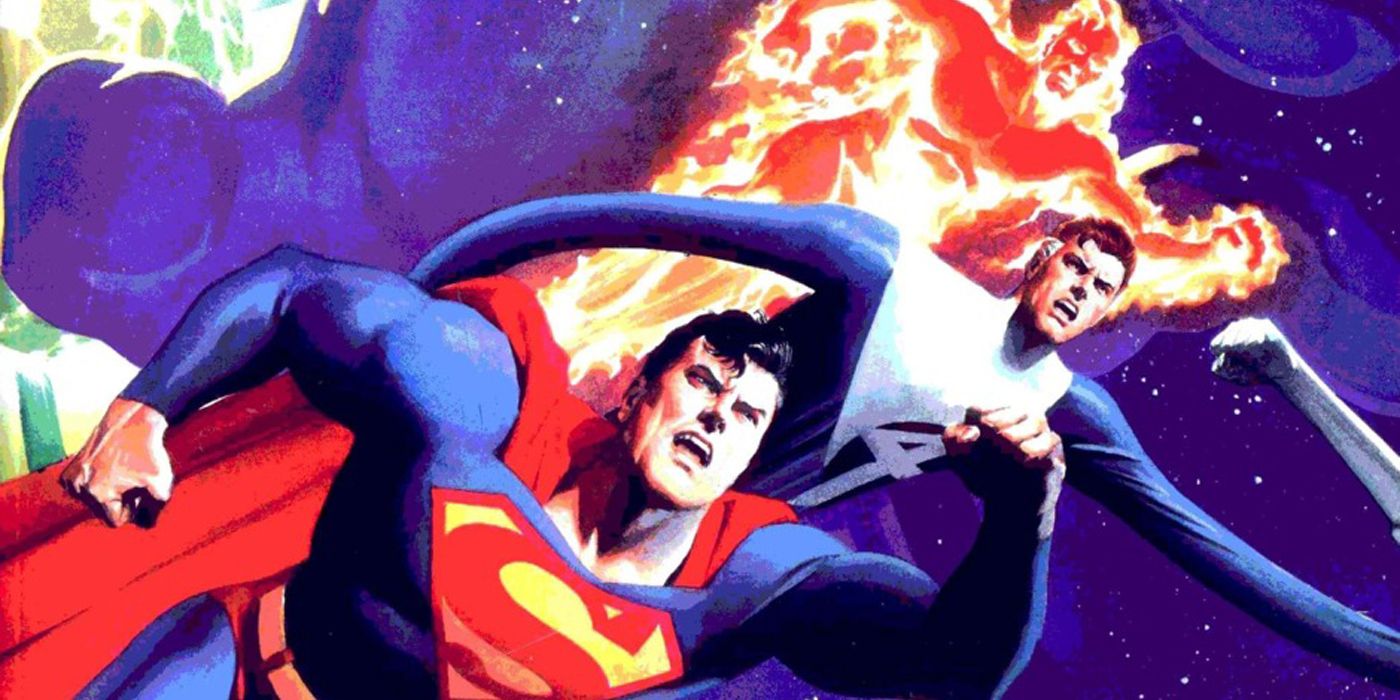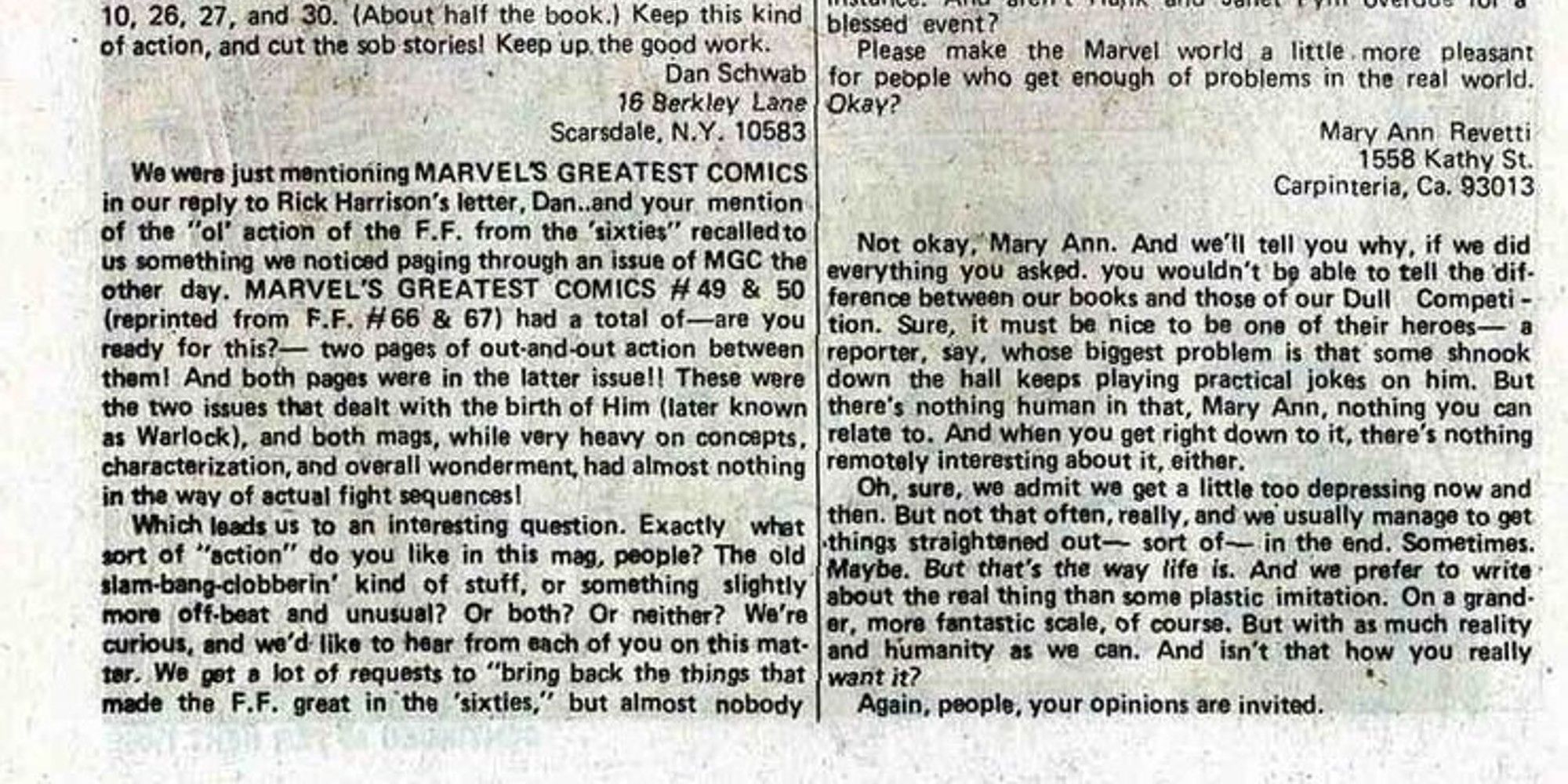Following the official separation of iconic comic book couple Reed and Sue Richards of the Fantastic Four, Marvel Comics would face a heavy onset of fan backlash. Rather than turn to any one of their own comic book titles, Marvel saw a fine scapegoat in the antics of DC Comics' most iconic superhero Superman.
Holding the esteemed title of the smartest man on Earth, Reed Richards a.k.a. Mr. Fantastic's duties to his work will frequently take precedence over his duties as a father, which places a strain on his personal relationship with his wife Susan Richards a.k.a. the Invisible Woman and his extended family. Dismayed by Reed's lack of family commitment, the Invisible Woman's faith in her husband reaches an all-time low. The domestic conflict would come to a stunning climax in Gerry Conway (Luke Cage Hero for Hire) and Rich Buckler (Astonishing Tales)'s Fantastic Four #147, titled The Sub-Mariner Strikes, which saw Sue officially file for divorce from Reed. The decision to separate Marvel's First Family not only came at a cost for Marvel's editorial department but to their dedicated readership.
As Marvel's Fantastic Four found themselves undergoing a new status quo, another familiar comic superhero was going through a metamorphosis of his own. DC's recent Superman series from writer Cary Bates (The Flash) and artist Curt Swan (Action Comics) had positioned the Man of Steel's alter-ego Clark Kent into gaining a pesky new colleague by the name of Steve Lombard. While Lombard is an established name within current DC Comics, the former Metropolis Meteors quarterback had quickly become a relative nuisance to both Clark and readers upon his initial introduction. It was readers who took a disliking to his juvenile antics and harassment on a god-tier superhero who had gained popularity for his epic storylines and battles. This was a "dull" turning point that DC's competition had worked to prevent from trickling into their mainstream comic titles.
Not every Marvel fan took a liking to Marvel's evolution of the Fantastic Four lore, with some preferring a return to the original structure of the team. While the letter pages of Fantastic Four #147 remained a moderately peaceful affair, the latter half of the pages were aimed at the company's inability to extinguish the team's personal affairs. In an attempt to shift the spotlight, Marvel followed up Fantastic Four #150 with another letters column and turned the blame onto not Conway, but another faithful writer Steve Gerber. The company had seemingly used Gerber's apparent love for DC's Superman character as a route to expound the Fantastic Four's changes. However, Gerber was not even a writer nor editor for the Fantastic Four book at the time of issue #147's publication, with Marvel horror newcomers Man-Thing and Son of Satan taking up the writer's schedule.
Before social media, there were comic letter columns and fans were generally quick to make their powerful opinions known. While some letters may actually be well found, the criticisms tied to the Fantastic Four may have been a bit overblown. After all, the Fantastic Four originated as the pioneers that made superheroes relatable for a new generation as they went through experiences that any real family goes through, such as divorce. Placing the blame onto DC and by extension, Steve Gerber, was a risk that could have easily seen Marvel lose one of their own true talents just to settle a growing fan debate settling at their doorstep. While somewhat inconvenient, it's admiring that Fantastic Four and Superman fans feel such an attachment to these comic book characters and won't hesitate to make a move when either Marvel or DC makes a decision that goes against the established norm.
Source: CBR.com


